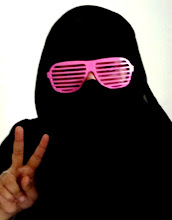 I've been thinking about an incident that occured in Salalah recently (few weeks ago) regarding the use of the word 'slave'. Evidently a young nurse (whose family were former slaves) got into an argument with a patient over something. The patient was from one of Salalah's so called 'high class' tribes or 'Assada' (that's another story that needs to be told). He ended up calling her a slave. She took him to court and he was forced to pay her a large sum of money (10,000 Rials?). He was also sentenced to six months in jail but was bailed out by his tribe.
I've been thinking about an incident that occured in Salalah recently (few weeks ago) regarding the use of the word 'slave'. Evidently a young nurse (whose family were former slaves) got into an argument with a patient over something. The patient was from one of Salalah's so called 'high class' tribes or 'Assada' (that's another story that needs to be told). He ended up calling her a slave. She took him to court and he was forced to pay her a large sum of money (10,000 Rials?). He was also sentenced to six months in jail but was bailed out by his tribe. .
This incident brought tears to my eyes. This is the first time I've heard of a former slave or descendents of slaves fighting for their rights. And to be honest, I had no idea that the Omani law protected slaves like this. When I was young, one of my closest friends was the daughter of slaves. She was the sweetest girl ever and I remember being made fun of by my classmates for befriending a 'slave' just because she was black. In fact, my older brother asked me to stop being friends with her because I was ruining the family reputation. This hurt me a lot, and I know it hurt her too, but we remained friends and she ended up moving to Muscat and is now studying abroad to become a lawyer.
.
.
Former slaves (African Omanis) aren't as visible in Muscat as they are in Sur and Salalah. A large percentage of people in Salalah are black and to be honest, I hardly notice anymore if a person is 'black' or not. Do keep in mind that slavery is still very fresh in the memories of locals in Dhofar. It was not abolished in Oman until 1970 when His Majesty Sultan Qaboos overthrew his father in a bloodless coup. In fact Oman (and Muritania) were the last two countries in the WHOLE WORLD to abolish slavery, with Muritania finally ending the world's slave era in 1981.
.
When slaves were freed in Dhofar in 1970, many of the palace slaves chose to remain in the palace and to continue working there. They remain very loyal and are treated royally by His Majesty. Slaves that worked for families chose to either remain with the family and take on the family name (yes, this is why you may sometimes see black Amris or Ghassanis or Shanfaris) and others broke off and created their own family names. They remained very hardworking and sometimes I envy their women because they're more liberal and independent than the rest of us in the tribal system. The first women to throw off the face veil were black. The first women to go out and work. The first nurses in Dhofar. The first women to become cashiers in supermarkets. The first to start driving. There are a lot of firsts. They are proud and successful and wonderful people.
.
They are our best soccer players, our best dancers and musicians and they're definitely keeping the music scene alive in Dhofar. All our local dancers are former-slaves. Take a look at the Salalah's handicrafts souq. The women working there from morning to night producing beautiful incense burners and leather are black. They do not have the stupid pride that most of the other tribes carry around with them. They don't worry about 'what people will say if I do this or that'. They're just enjoying their life, and I salute them for it.
.
What do you think?










